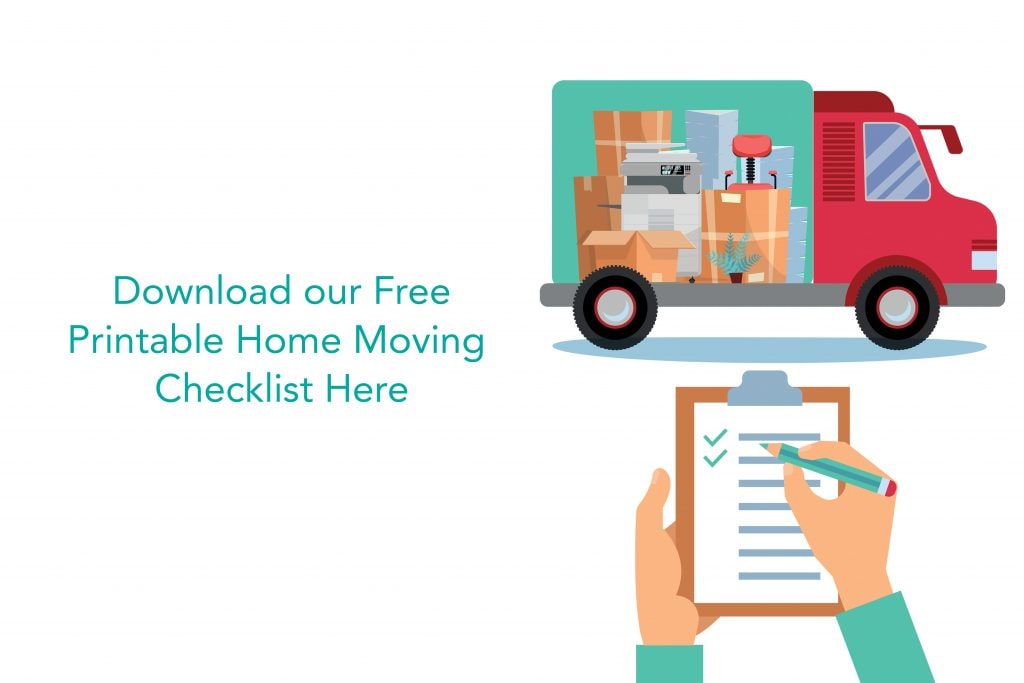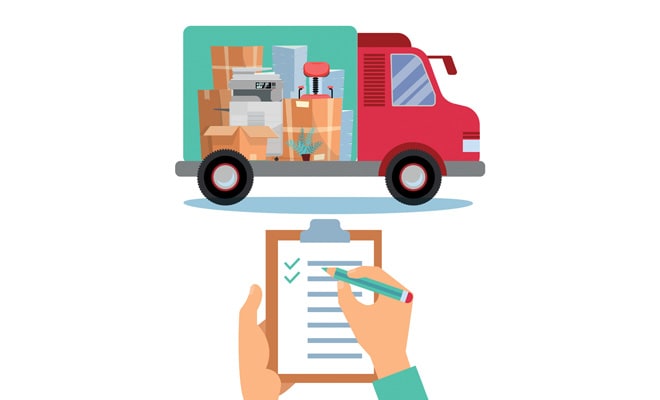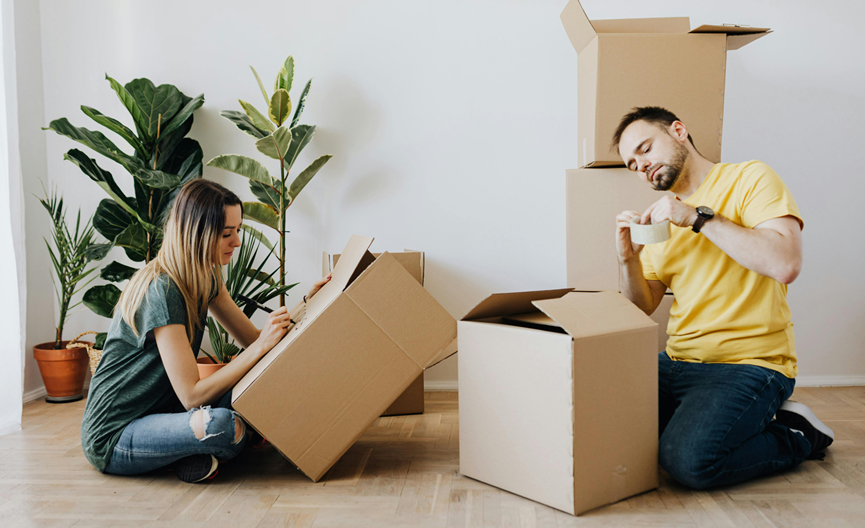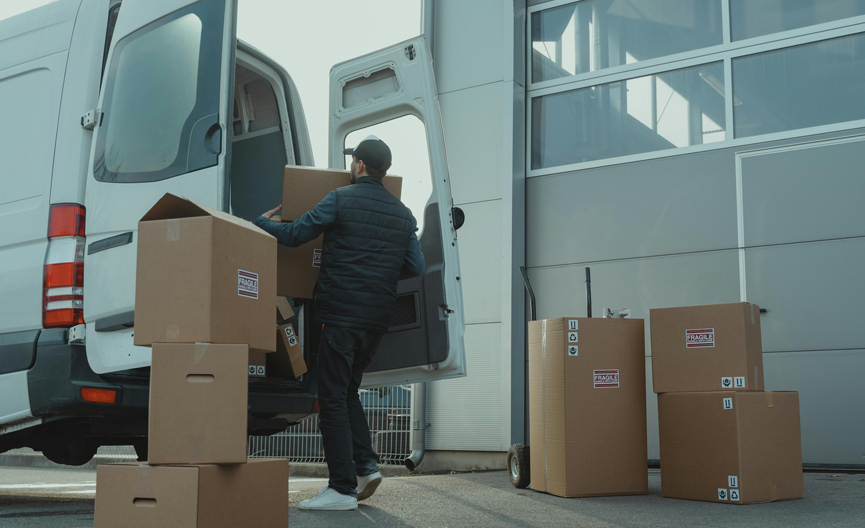
Your Moving House Checklist: 14 Things Not to Forget
The process of moving house is always going to be overwhelming, no matter how many checklists and PDFs you download onto your phone. That said, getting organised is never a bad idea, and it could help your move to go that much more smoothly in the long run.
Things to Do Before Moving House
Step 1: Stock Up
Packaging materials, boxes, Sellotape and packing peanuts can all help your preparations to go as smoothly as possible. You can buy these items exclusively for the move, or recycle delivery boxes and craft supplies to save money on your move. Just make sure to have what you need well in advance – you don’t want to be scrambling for boxes on the final week!
Step 2: Clear Out
One of the top priorities on any moving out checklist is to do a thorough clear out in advance. The last thing you want to do is cart rubbish to your new home, taking up precious storage space along the way. Go through each room in turn, sorting through loose items and making a shortlist of furniture you want to keep and what you want to get rid of. You can hire a skip to help you dump everything in bulk, arrange a collection or drive a few of your old things to a charity shop close to home.
Step 3: Budget
Take your plans to the drawing board: it’s time to set aside a budget. The cost of moving house doesn’t stop at the price you paid for your home! You’ll need to hire a moving van, pay your stamp duty, settle your legal fees and replenish a whole fridgeful of groceries when you get to the other side. Make sure that you create a strong, meticulous budget with a reserve to spare for unexpected costs.
Step 4: Book a Removal Van
If you’re wondering how to get started moving house, booking a removal van is one of the biggest steps forward. Make sure to check reviews and word-of-mouth recommendations to find the best removal company for you. If you’re moving to or from London, you should check that your company can enter the ULEZ, too!
Step 5: Pack a Suitcase
Before you stash your belongings away in boxes, pack a suitcase with a week’s worth of clothes and hygiene items. Everyone in the house needs to do this – it’ll save you a world of stress in your new home! A suitcase is a necessity during your first few days in the house, when all of your things are still boxed up and stored away.
Step 6: Get Packing
Packing should be done in stages to avoid getting overwhelmed. You can do this room by room, corner by corner, or by item type and utility – whatever method suits you the best. Never try to tackle everything at once, otherwise you could suffer burnout and struggle to complete on time. The longer you give yourself to pack up your home, the better.
Who to Inform when Moving House
Step 7: Tell the Utility Companies
Wondering who to notify when you move? Your first priority should be the utility companies! Make sure that your gas, electric and water providers all know the date you’ll be moving out, and get confirmation in writing if you can. The last thing you want is to be charged bills at your old home when you’ve already started paying them at the new place.
Step 8: Set Up your Wifi
You’ll need to let your provider know a few weeks in advance if you want to get Wi-Fi within a week or two of moving. Like the utility companies, make sure that your broadband company is aware of your move-in date and has given you a timeframe for the installation of a new router. If you can get it all on paper, even better!
Step 9: Redirect your Mail
You can pay a fee to Royal Mail to redirect letters from your old home to your new home. This is especially useful if you receive regular letters from multiple sources, or still get your bank statements delivered through the door. Even if you don’t, redirection can serve as a handy precaution to prevent stressful situations from cropping up.
Step 10: Update your Vehicle Paperwork
Your car is one of the most heavily-documented possessions you’re likely to have (other than the house, of course). You’ll need to update quite a few of those documents to avoid driving illegally! A few things you’ll need to update include your driver’s licence, car insurance details and your vehicle logbook.
What to Do on Moving Day
Step 11: Take a Meter Reading
You’ll need to take two meter readings on moving day: once before you leave, and once when you arrive. If you fail to do so, you could be overcharged for utilities – even if you let your providers know in advance! Make a note on paper or on your phone, and keep hold of the numbers in case your company asks for them. It could save you a lot of money in the long run!
Step 12: Drive Safely
Stress makes everyone’s feet a little jumpy on the pedals. When you’re moving house, you’re unlikely to be as focused as you usually are on the road. It’s important to take breaks whenever you need them to make sure that you’re driving safely and attentively, even if you have a lot on your mind. If possible, ensure that you’re not the only driver available on moving day – it helps to swap out if you’re getting too stressed!
Post-Moving House Tips
Step 13: Organise by Room
When you unpack your moving van on the other side, you should set yourself up by placing individual boxes in the rooms they’ll be unpacked into. This could save you a lot of time and energy, and helps the unpacking process to go as smoothly as possible.
Step 14: Register to Vote
You’ll need to register to vote at your new address before you can get a polling card and head out to the station. Make sure you don’t forget, or your cards could be sent to your old address! While nobody other than you can vote under your name, you don’t want all of your personal information to be pushed through the door of someone else’s home.
Things to Consider When Moving House
There are a lot of suggestions floating around about what you should do when moving house, and all of them are good ideas. It’s important to remember that your health comes first, and avoid overstressing yourself as much as possible. At the end of the day, all you really need to do is take your family from one home to another – if you can’t handle moving everything at once, you can always hire some extra storage to smooth out the process.




